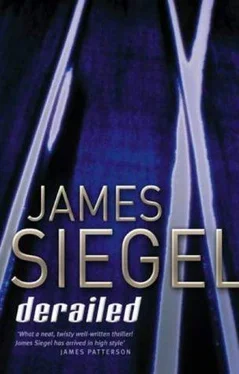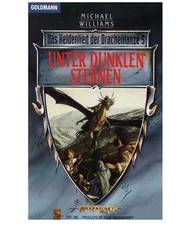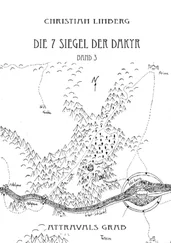I got out of the car, I walked around to the other side, I opened the door and watched helplessly as Winston fell over onto the ground. I would try to think of it as the body — the thing that’s left behind when the soul, what made Winston Winston, had already departed. It was easier that way.
I lifted the body by its arms and began dragging, and I immediately realized that the term dead weight was not a misnomer. Dead weight was the immovable object, panic the irresistible force, but who said the irresistible force wins out? I could barely move the body; an inch or three at a time. It felt as though it were pulling back—tugging at my shoulder sockets, at my elbow joints and aching wrists. At this rate, I’d have the body through the fence by daybreak, just in time for a fleet of sanitation workers to point me out at the police lineup. That’s him, they’d say — the man pulling the deceased into the garbage dump.
But slowly, torturously, I made progress, working out a kind of routine: one huge pull, then a dead stop to catch my breath, shake my hands, and rev up for another. In this fashion, I got the body all the way to the torn section of fence without suffering a single heart attack. And still hours from sun break, too—twelve-thirty, according to my luminescent-dial Movado, a forty-second-year birthday gift from Deanna, who was probably starting to wonder where I was. She worried, and she did it better and with greater dedication than anyone I knew.
I fished my cellular phone out of my coat pocket, flipped it open with a now throbbing wrist, and pressed 2 — my home number. Number 1 in automatic dialing was Dr. Baron’s office.
“Hello?” Deanna, sounding, yes . . . upset.
“Hi, honey. I didn’t want you to worry — it’s taking longer than I thought.”
“Still at the office?”
“Yeah.”
“Why are you calling on your cellular?”
Yes, why was I?
“I don’t know. I walked down the hall for coffee and suddenly realized how late it was.”
“Oh, okay. How much longer do you have?”
Good question. “An hour or so, maybe . . . we have to show these stupid aspirin boards in the morning.” I was kind of surprised how adept I’d become at telling lies, surprised too that I was having this perfectly normal domestic chat — I’m working late, dear — while standing over a man with half a head.
“Well, don’t work too hard,” Deanna said.
“Yes, I won’t.” Then: “I love you, Deanna,” saying her name this time, which on the scale of I love yous ranked somewhere near the top, uttered as something meant as opposed to just another way to end a conversation. Love you — love you, simply a more intimate version of good-bye, but not when you put a name there. Not then. . . .
“I love you, too,” Deanna said, and I knew she meant it, no name necessary.
I put the phone back in my pocket, put one foot through the open hole, reached down, and began to drag Winston through.
The stench was worse over here — hard to imagine, but it was. Outside the fence I was smelling it, but inside the fence I was eating it, ingesting it smell by smell and beginning to turn sick to my stomach.
I pulled the body farther into the dump, closer to the edge of the enormous mound of ground-up garbage. Now that I was this close to it, it looked like one of those temples to the sun I’d seen in Mexico City on a long-ago trip with Deanna. PreAnna, and we’d spent the mornings sight-seeing and the afternoons soaking our livers in tequila. Lots of lovemaking, followed by long drunken naps.
Now what?
You could think in the general all you wanted, but sooner or later the specific starts snapping at you for answers. I’d gotten the body to the dump, I’d dragged it through a barbed-wire fence, I’d brought it to the very foot of the temple of the garbage god.
I looked down at my hands, the very hands that hugged Deanna, that gave insulin shots to Anna, that once upon a time had explored every inch of Lucinda, now being asked to moonlight on a very different kind of job. To shovel a grave.
I dug in, scooping out handfuls of ground-up waste, sharp pieces of tin and bone, glutinous pieces of gristle and fat, man-made fibers of cardboard and Sheetrock.
If I’d been trying to remain dispassionate before, I took it up like religion now. As if my soul depended on it, my very life, this objectification of tonight’s events. Merely smells, merely hands, merely a body. Focusing solely on the act of digging — so much material removed at such and such a rate, leaving an ever widening hole.
By now, I had garbage all over me, up to my elbows in garbage—dangerously close to becoming garbage.
I heard something from far off, the sound of a thunderstorm that might or might not be coming this way — but maybe it wasn’t a thunderstorm after all. The sound was a little too thin for thunder — and as far as I could tell, it was a more or less cloudless night. I heard it again — ears wide open this time — and finally recognized it for what it was. And in recognizing it, I pictured it, too: black pointy ears, snub tail, and sharp white teeth practically dripping with saliva.
And it was getting closer. The junkyard dog of my nightmares.
I dug quicker, scooping out the worst kind of shit with broken-nailed fingers like a dog digging for bones. And every passing minute I could hear the real dog getting louder — distinct barks and growls drifting around the mounds of garbage and over to me, just as my scent must have been drifting back the other way.
The hole was big enough. I stood up and breathed once, twice — getting myself ready for my last physical expenditure of the night.
A cloud of seagulls suddenly passed in front of my eyes — a screaming thundercloud of them, swollen with panic. I could see two glowing eyes staring at me from across the dump.
All those clichés of fear — of where real fear first makes itself known to you: in the pit of your stomach . . . up and down your spine. They were all true. And I could feel it in places you might not expect, either. The back of my neck, where it felt as if each little hair were standing on end. The hollow of my chest, which was vibrating like a bass woofer.
The two eyes advanced and with them a sound that grated on what little nerve I had left. Not a bark, no, one low, sustained growl. The kind that said, I am not happy to see you.
I began to back up, slowly, one baby step at a time, even as the dog — I couldn’t make out what breed, exactly; let’s say human retriever — padded closer and closer.
Then I turned — and ran. Maybe I shouldn’t have; maybe it would have been wiser to stare it down. Never show a dog fear — wasn’t that the old wives’ adage you’re taught from youth? It makes them mad, gets their blood up, stirs up their carnivorous impulses.
But something else stirs up their meat-eating instincts even more. Meat. And I had magnanimously left the dog a lot of it. In the person of Winston.
It took several minutes — several minutes I spent scurrying out through the fence hole and into the car — to realize that the dog wasn’t following me.
And then I heard it. A sound of gnashing teeth — of tearing flesh — of lascivious guttural consumption.
The junkyard dog was eating Winston.
TWENTY-FIVE
I had to get rid of the blue Sable.
It had been rented from Dollar Rent A Car by one Jonathan Thomas. One of the four driver’s licenses Winston had stuffed in his otherwise depleted wallet.
The easiest thing to buy—identities, Winston had confided in me. And Winston had four of them. Back when I was young and idealistic, searching for your identity was an expected rite of passage. Winston, on the other hand, simply bought his — or stole it — making sure he had a few extras just in case.
Читать дальше












